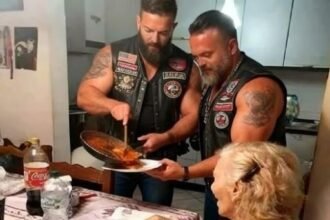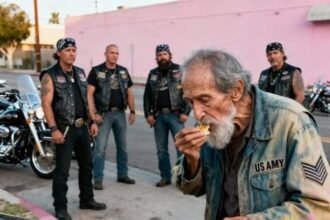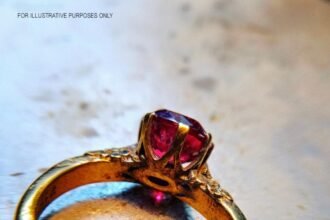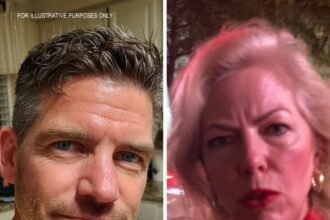⬇️⬇️
Continue reading below
iles to Pine Ridge Children’s Hospital, police escorts holding traffic. Crowds on sidewalks waved orange ribbons.
At the hospital entrance, Samira handed me an envelope. “Your dad raised enough last year to cover one child’s surgery.
Today the riders doubled it.” Inside was a check for $64,000 – and the surgeon’s letter approving the girl’s spinal operation.
She looked at me, eyes wide. “Will you sign the check, Mister Frank’s Son?”
For the first time since the funeral, tears came. “Call me Frank’s kid,” I said, scribbling my signature.
“Seems I finally earned it.”
Later, while riders swapped stories over lukewarm coffee, the hospital director pulled me aside. “You should know,” she said, “your father turned down a machinist job at a medical device company twenty-three years ago. It paid triple what the shop did.
He said he couldn’t take it because your mom was sick and he needed the flexibility to care for her. He never told you?”
I shook my head, stunned. My mother died of leukemia when I was eight.
All I remembered was Frank rubbing her feet at night and missing work to drive her to chemo appointments. I always assumed he skipped higher ambitions because he lacked them.
Turns out, he gave them away for us.
Back in my childhood bedroom that night, I reread his letter. The words felt like a map drawn in grease pencil, pointing forward.
My business degree suddenly looked small next to his life’s balance sheet of compassion.
I made a decision. I sold half the scholarship’s investment portfolio to purchase adaptive machining equipment Samira had been eyeing. The shop would stay open, but one bay would convert into a free vocational program for at-risk teens.
We would teach them how to fix bikes – and, more importantly, how to fix the parts of themselves the world kept labeling “broken.”
Three months later—on what would’ve been Frank’s fifty-ninth birthday—we hosted the first class. Ten kids, one dented whiteboard, greasy pizza, and a cake shaped like a spark plug. I stood under a banner that read Ride True.
I told them about a stubborn mechanic who measured his life in lives mended. I told them how pride can masquerade as success, and how humility often arrives on two wheels and smells like gasoline.
When the bells of Saint Mary’s church rang at noon, the same veteran rider who’d handed me the flag pressed something into my palm: my father’s old orange bandana, freshly washed and folded.
“He said highway miles belong to anyone brave enough to ride them,” the man whispered. “Looks like you’re brave enough now.”
I used to think titles were passports to respect.
Turns out, respect is stamped not by what you do, but by who you lift along the way. My father lifted strangers, neighbors, and one stubborn son who took far too long to appreciate him.
So if you’re reading this on a crowded train or a quiet porch, remember: the world doesn’t need more perfect résumés. It needs more open hands and engines tuned for kindness.
Call home while you still can. Hug the people who embarrass you—you might discover their courage is the exact engine you’ve been missing.
Thanks for riding through this story with me. If it sparked something in you, hit that like button and share it forward.
Someone out there might be waiting for their own orange-ribbon moment.




